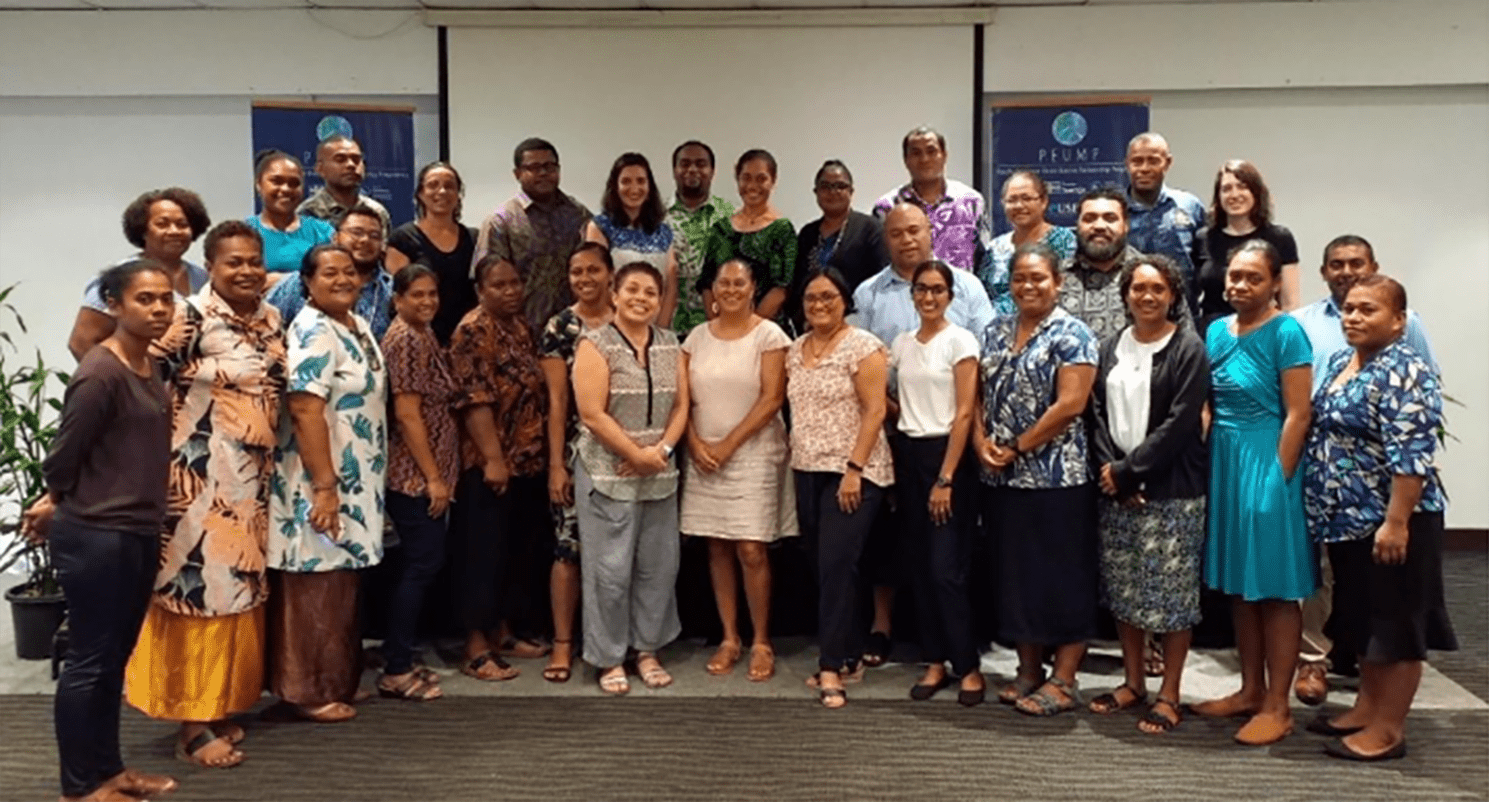

Advancing equity in Pacific Island Fisheries
October 10, 2023

The Crawford Fund’s highly sought after Student Awards are one way we support and encourage the next generation of Australians into study, careers and volunteering in international agricultural research.
The awards are funded by our State and Territory Committees and made possible by organisations including ACIAR, international centres, Australian and overseas universities and NGOs who host our awardees. The next round of awards will open in November!
In 2022, we announced 14 tertiary students had won awards to gain international agricultural research experience and expertise. With the resumption of global travel, many of these NextGen Student Awardees have travelled overseas to undertake projects, with quite a few involved in our Instagram campaign, reporting when they are on the ground.
Cristina Ruano-Chamorro from James Cook University recently visited Fiji for her project advancing equity in small-scale fisheries management in the Pacific Island nations. The research involved collaboration with the Pacific-European Marine Partnership (PEUMP) programme on mainstreaming gender, social inclusion and human rights-based approaches in coastal fisheries. She shares her experience below.
Small-scale fisheries (SSF) in the Pacific are critical to multiple dimensions of human wellbeing. SSF in the Pacific are often managed through co-management approaches, which are considered to be more equitable than other management approaches (e.g., state-led) because they aim to ensure decision-making power to people affected by SSF management decisions.
However, co-management often leads to inequities in the distribution of management costs and benefits and inequities in decision-making processes. For example, more powerful individuals often have more influence over decisions and are more able to capture more benefits.
“Multiple efforts are being made to promote equity in the management of small-scale fisheries (SSF) in the Pacific Island countries and territories. However, understanding of equity is often limited, therefore compromising the ability of stakeholders to promote equity in SSF management in meaningful ways,” said Cristina.
“Improving stakeholders’ understanding of what equity is and how to promote it locally is key to ensuring meaningful mainstreaming of equity in the Pacific Island fisheries,” she said.
Promoting equity in SSF management is important for both ethical and instrumental reasons. Firstly, ensuring equity is key to protecting the rights that sustain human wellbeing and dignity and secondly, equity can lead to positive social and ecological outcomes. For example, when management is equitable, people are more likely to cooperate and comply with rules, with positive implications for sustainability.
A collaborative one-day workshop was co-organised by Cristina and her colleagues to improve the understanding of the concept of equity, exchange knowledge, share learnings, and bring together the perspectives of diverse stakeholders in SSF management in Pacific Island countries and territories. They focused on what constitutes equity across its multiple dimensions, and identifying the challenges, opportunities, and potential strategies to advance equity in SSF management in the region.
A total of 29 participants representing academic, NGO, and fisheries governing institutions attended the workshop.

Participants suggested several strategies to address equity in SSF management. Most of these strategies could be grouped into four key themes:
- Strategies concerning data encompassed the importance of creating more research opportunities, collecting more evidence and analysing past data with an equity lens to grasp what equity means in the Pacific.
- Leadership strategies included identifying champions and promoting leadership at multiple scales (e.g., community, regional, national).
- Strategies associated with the cultural context included: engaging and valuing local expertise to contextualise equity; recognising examples of equity that already exist in the culture; and, integrating indigenous knowledge with modern knowledge.
- Strategies associated with the institutionalisation of equity included promoting equity within organisations (e.g., fair recruitment practices, ensuring equitable human resources implementation, administration, equitable institutional policies, fair access to training), strengthening institutional capacity (e.g., investing in the budget, equity in planning) to promote equity and reviewing the way organizations do things in terms of equity (e.g., monitoring, evaluation).
“This workshop has improved understanding of equity among practitioners, promoted the co- production of knowledge around equity issues in SSF management and helped identify key challenges, opportunities and possible strategies for advancing equity in SSF management in Fiji and the wider Pacific Islands, as well as the role of organisations (government, NGOs and CSOs) in addressing equity issues in this context. Overall, this workshop has brought multiple benefits for the Pacific, for Australia and for me and the co-organisers of this workshop,” Cristina concluded.




